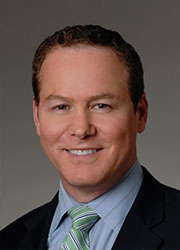Proposed IRS Regulations Offer More Potential Uses of Opportunity Zone Funds for Real Estate Development
By Catherine Holmes, Brad Cohen and Guy Maisnik
On October 19, 2018, the IRS issued the first set of proposed regulations and a New Revenue Ruling on new Internal Revenue Code Section 1400Z-2 governing Opportunity Zone investments.
Under the new Opportunity Zone tax law, taxpayers who realize taxable capital gains from the sale of any asset (stock, property, etc.) and who reinvest those gains into “Qualified Opportunity Funds” (“QOFs”) or “Qualified Opportunity Zone Property” (“QOZP”) will be eligible to receive significant tax benefits, including deferral of their original gain, reduction of their original taxable gains after holding periods of five years or seven years, and no tax on capital gains realized from the new investment in a QOF or QOZP after a holding period of 10 years.
The first set of proposed regulations issued by the IRS under Code Section 1400Z-2 cover a number of issues that apply to individual taxpayers with respect to gains eligible for deferral, types of taxpayers eligible for deferral, the “180-day rule” defining when a qualified investment must be made in order to qualify for the deferral, and how to elect a deferral of the initial capital gain. In addition, the proposed regulations, along with new Revenue Ruling 2018-29, provide guidance to real estate developers seeking to form QOFs or determine whether their properties qualify as QOZP. This article focuses on the regulations and the Revenue Ruling that apply to QOFs and QOZP, and addresses how those regulations and the Revenue Ruling will help real estate developers seeking to raise Opportunity Zone investments to finance real estate development.
How to designate an entity as a QOF and how that Impacts the 90% Test for Eligibility as a QOF
The Regulations specify that any corporation or entity taxed as a partnership, including pre-existing entities, may self-certify as a QOF by using a form that has been proposed by the IRS. The Regulations further allow the QOF to choose the month in which the entity elects to be designated a QOF. If the QOF does not designate a month on the tax form, the Regulations provide that the designation will commence with the first month of the taxable year of the entity. This is important, because a QOF must hold at least 90% of its assets in QOZP as measured on the last day of the first 6-month period of the taxable year of the QOF and on the last day of the taxable year of the QOF. Therefore, if a QOF designates January as the first month of designation, the first six month test will apply in July. If a QOF designates any month after June of the taxable year, the Regulations state that the first test period will be the end of the first taxable year.
How to measure whether a QOF meets the 90% Asset Test and the Special Rule for Working Capital
The Regulations state that a QOF will meet the 90% Asset Test if the asset values reported in its financial statements for the taxable year show that 90% of its assets are QOZP. Alternatively, if the QOF has no financial statements, then the test will be based on the cost of the assets. The Regulations also provide a very important allowance for real property developers, insofar as they allow a QOF to hold working capital in the form of cash for up to 31 months if the QOF has a written plan to invest the cash in QOZP and a written schedule to invest the cash in QOZP, and the QOF substantially complies with that business plan and schedule. This in effect allows a developer a period of 31 months after initial designation as a QOF to complete the investment of the full amount of capital raised for a development in an Opportunity Zone.
For QOFs that conduct business through separate entities, only 70% of the tangible assets of those separate entities are required to be Qualified Opportunity Zone Business Property
The Code provides that a QOF itself is required to hold at least 90% of its assets in QOZP, which may consist of stock, partnership interests or Qualified Opportunity Zone Business Property (“QOZBP”). However, QOZP itself is defined as a business in which “substantially all” of the tangible property of such business is QOZBP. The regulations define this particular use of the term “substantially all” to mean 70% of the tangible property of the QOZP. What this means is that if a QOF holds assets consisting of stock or partnership interests in one or more separate entities, each of those entities is required to hold at least 70% of their tangible property in QOZBP. This in turn means that if a QOF holds all of its assets through separate entities, then effectively only 63% (90% x 70%) of the indirectly owned tangible assets of the QOF are required to be QOBP, because each one of the separate entity holdings is only required to hold 70% of its assets in QOBP.
For improved real property, substantial improvement only requires that the value of the building be increased, not the value of the land
This may be the most significant of the IRS guidance for real estate developers, because it may open the possibility for many more properties to be redeveloped. For this, the IRS issued Revenue Rule 2018-29, which asks and answers three questions:
- First, if a QOF purchases land with an existing building, can “original use” be considered to commence with the QOF? Answer – No, so the QOF is required to substantially improve the property.
- Second, Is substantial improvement measured by the value of the building or the building and land? Answer – Substantial improvement is measured by the value of building only – not the land.
- Third, Is QOF required to substantially improve both land and building? Answer — No, the QOF is only required to substantially improve the value of the building, not value of land.
What this means is that if the value of the building is 40% and the value of the land is 60% of the combined value of the improved property, then the developer only needs to increase the basis in the property by the value of the building – not the value of both the land and the building. The land will still be treated as substantially improved and therefore included in the 90% Asset Test. This may allow more properties to be acquired and redeveloped than originally appeared in the statute.
There is a possibility that property acquired before December 31, 2017 may be made eligible in future regulations
The Regulations contained a statement that the Treasury Department is requesting comment on whether there is a statutory basis for additional flexibility on the requirement that property must be acquired after December 31, 2017, because that might facilitate participation in the program by a greater number of pre-existing entities. This would be a welcome change, because it would not penalize property owners who already own property in Opportunity Zone areas, but have not previously been able to attract enough capital to develop those properties. As a policy matter, it does not seem necessary to penalize existing owners of Opportunity Zone property by requiring them to sell their property to allow someone else to take advantage of the new capital access created by the Opportunity Zone tax incentives.
Reinvestments by QOFs will be addressed in future regulations
The proposed Regulations do not include any specific requirements regarding reinvestment of proceeds of sales of QOZP, but state that the IRS will soon release regulations that will provide guidance on reinvestment requirements and the reasonable time period required for reinvestment.
The time period for investments in QOFs has been effectively extended
According to the proposed Regulations, a taxpayer seeking to make a deferral election with respect to capital gains invested in a QOF will be allowed to make the deferral election until June 29, 2027, and the taxpayer will be allowed to claim the tax benefit of the QOF investment until December 31, 2047. This seems to mean that taxpayers could make investments in QOFs until as late as June 29, 2027.
Taxpayers may rely on these regulations before the effective date
The proposed regulations will become effective upon publication in the Federal Register, which is expected to occur within approximately 60 days. However, taxpayers are permitted to rely upon these proposed regulations with respect to eligible gains, dispositions of investments in Qualified Opportunity Funds (“QOFs”), taxable years that begin before the final regulations and investments made before the final date of the regulations.
These proposed regulations provide several helpful clarifications that will allow more real estate developers to utilize the capital from taxpayers seeking the benefit of the Opportunity Zone tax incentives. Developers interested in accessing this new capital should contact their legal and tax accountants soon to determine how they can structure their projects in a manner that will meet these requirements.
 Catherine DeBono Holmes is the chair of JMBM’s Investment Capital Law Group, and she has practiced law at JMBM for over 35 years. She has also worked as a senior member of the JMBM Global Hospitality Group and JMBM Chinese Investment Group. Within the Investment Capital Law Group, she works with real estate developers and business owners, brokers, investment advisers and investment managers to raise and manage investment capital from U.S. and non-U.S. investors. She has acted as lead counsel on numerous hotel, residential and mixed-use developments and transactions in the U.S., Europe, China, South America and Asia Pacific regions, as well as hotel management and franchise agreements and public-private hotel developments. She has also represented private investment fund managers, registered securities broker-dealers and investment advisers on securities offerings, business transactions and regulatory compliance issues. She is an active member of IIUSA, and has served previously on the Best Practices Committee, and currently on the Editorial Committee. For the last two years, she has been named as one of the top 25 securities lawyers in the country by EB5 Investors magazine. She is a frequent speaker and author on EB-5 topics. Cathy can be reached at cholmes@jmbm.com or 310.201.3553.
Catherine DeBono Holmes is the chair of JMBM’s Investment Capital Law Group, and she has practiced law at JMBM for over 35 years. She has also worked as a senior member of the JMBM Global Hospitality Group and JMBM Chinese Investment Group. Within the Investment Capital Law Group, she works with real estate developers and business owners, brokers, investment advisers and investment managers to raise and manage investment capital from U.S. and non-U.S. investors. She has acted as lead counsel on numerous hotel, residential and mixed-use developments and transactions in the U.S., Europe, China, South America and Asia Pacific regions, as well as hotel management and franchise agreements and public-private hotel developments. She has also represented private investment fund managers, registered securities broker-dealers and investment advisers on securities offerings, business transactions and regulatory compliance issues. She is an active member of IIUSA, and has served previously on the Best Practices Committee, and currently on the Editorial Committee. For the last two years, she has been named as one of the top 25 securities lawyers in the country by EB5 Investors magazine. She is a frequent speaker and author on EB-5 topics. Cathy can be reached at cholmes@jmbm.com or 310.201.3553.
 Brad Cohen is a partner in JMBM’s Taxation and Trusts & Estates Groups. His practice emphasizes business planning related to complex corporate and partnership transactions, including mergers and acquisitions, financing and business succession planning, income tax planning, and estate tax planning, all on an integrated basis. Brad is best known for his business and tax advice related to the motion picture, television, music, emerging media and sports industries. One of the focuses of his practice is coordinating the relationships among the entertainment, advertising and nonprofit industries. In addition, he advises real estate industry clients in sale, acquisition, deferred exchanges and financing, including structuring of Qualified Opportunity Zone funds. Contact Brad at BCohen@jmbm.com or 310.201.3575.
Brad Cohen is a partner in JMBM’s Taxation and Trusts & Estates Groups. His practice emphasizes business planning related to complex corporate and partnership transactions, including mergers and acquisitions, financing and business succession planning, income tax planning, and estate tax planning, all on an integrated basis. Brad is best known for his business and tax advice related to the motion picture, television, music, emerging media and sports industries. One of the focuses of his practice is coordinating the relationships among the entertainment, advertising and nonprofit industries. In addition, he advises real estate industry clients in sale, acquisition, deferred exchanges and financing, including structuring of Qualified Opportunity Zone funds. Contact Brad at BCohen@jmbm.com or 310.201.3575.
 Guy Maisnik is a hotel lawyer at JMBM. He is the Vice-Chair of JMBM’s Global Hospitality Group®, a senior member of JMBM’s Chinese Investment Group™, and a partner in JMBM’s Real Estate Department. In addition to advising on hotel transactions in the U.S., Guy has handled matters throughout Mexico, Canada, South America, Caribbean, Eastern and Western Europe, Australia, Middle East and Asia. Guy also has significant experience in structuring capital raises with both domestic and foreign capital investors. With over three decades of commercial real estate and finance experience, Guy advises clients on hospitality transactions, representing lenders, opportunity funds, banks, special servicers, owners, REITs and developers, including senior mezzanine, tax deferred exchanges, tax credit transaction, project financing, workout and debt restructure, co-lender, participation and securitization arrangements, joint ventures, management agreements, buying, selling and ground leasing of hotels, and complex mixed used development. Guy has been recognized as an outstanding lawyer in The Best Lawyers in America®, Los Angeles Magazine, California Real Estate Journal and Real Estate Southern California. Contact Guy at MGM@jmbm.com or +1 (310) 201.3588.
Guy Maisnik is a hotel lawyer at JMBM. He is the Vice-Chair of JMBM’s Global Hospitality Group®, a senior member of JMBM’s Chinese Investment Group™, and a partner in JMBM’s Real Estate Department. In addition to advising on hotel transactions in the U.S., Guy has handled matters throughout Mexico, Canada, South America, Caribbean, Eastern and Western Europe, Australia, Middle East and Asia. Guy also has significant experience in structuring capital raises with both domestic and foreign capital investors. With over three decades of commercial real estate and finance experience, Guy advises clients on hospitality transactions, representing lenders, opportunity funds, banks, special servicers, owners, REITs and developers, including senior mezzanine, tax deferred exchanges, tax credit transaction, project financing, workout and debt restructure, co-lender, participation and securitization arrangements, joint ventures, management agreements, buying, selling and ground leasing of hotels, and complex mixed used development. Guy has been recognized as an outstanding lawyer in The Best Lawyers in America®, Los Angeles Magazine, California Real Estate Journal and Real Estate Southern California. Contact Guy at MGM@jmbm.com or +1 (310) 201.3588.
JMBM’s Opportunity Zone Group
JMBM’s Opportunity Zone lawyers help investors to qualify for Opportunity Zone benefits, and helps developers, investment funds, and investment advisers to structure, offer and manage Opportunity Zone Funds. Our multi-disciplinary group of securities, tax and real estate law specialists provide expert legal and business advice to assist our clients with structuring and analyzing Opportunity Zone investment opportunities for investors; structuring offerings of Qualified Opportunity Funds; conducting offerings of Qualified Opportunity Funds in compliance with U.S. federal and state securities laws; and advising managers of Qualified Opportunity Funds on tax and operational issues.

 Investment Law Blog
Investment Law Blog


